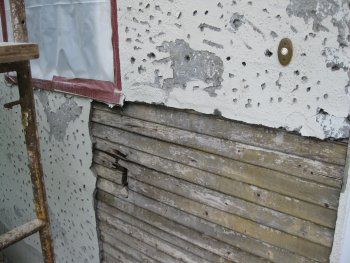
|
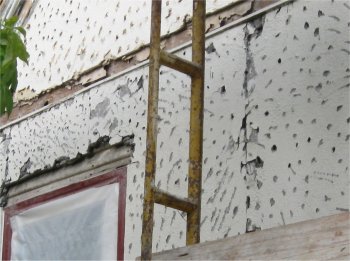
|
Loose areas are stripped off revealing that this
house was stuccoed using metal lath over the original wood clapboard
siding, probably in the 1930's or 40's. The painted stucco that was
still pretty solid, was chipped and prepared for resurfacing.
|
Areas above the windows, roofs, and wood sill
were cut back to put on flashing new flashing.
|
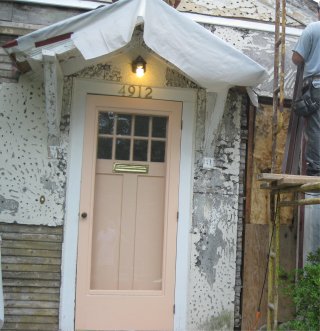
|
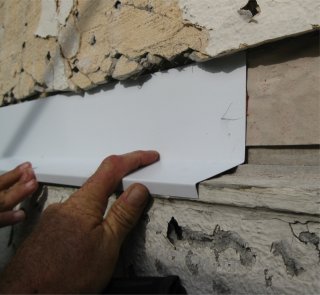
|
Notice the damaged areas below the roof
intersection. This is typical. A kick out flashing would have prevented
this damage.
above the new roof. We didn't want to damage the new copper roof, and
the stucco was pretty solid.
|
Flashing was bent using a sheet metal brake and
put on.
For more about flashing..
|
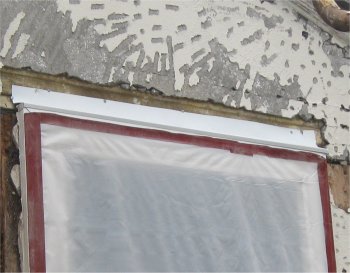
|
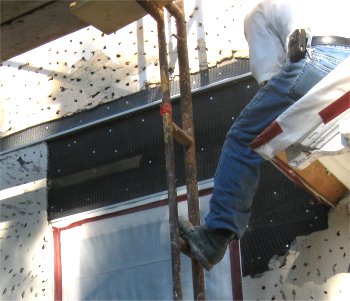
|
Flashing installed over window. The paint on the window trim
had peeled prematuurely due to lack of flashing.
|
Patches are covered with tarpaper and metal lath.
|
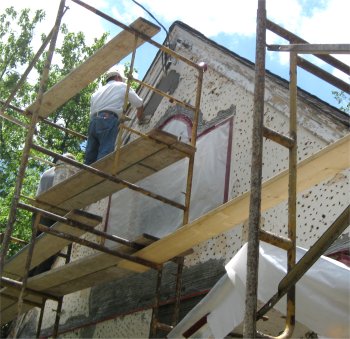
|
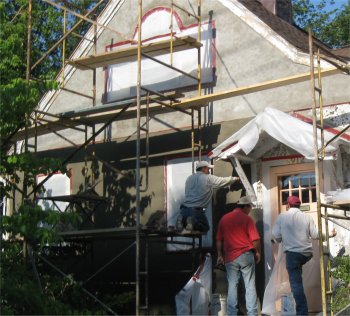
|
After patches are filled in with mortar, wall is coated
with a bonding coat.For more on how we re-coat old stucco.
|
A bonding coat is applied over entire wall, including
patches. The surface is left rough for a good bond
with the finish coat.
|
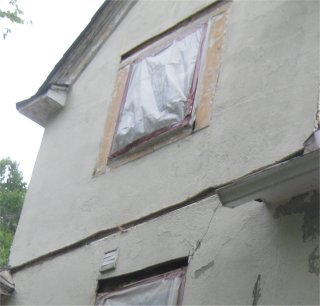
|
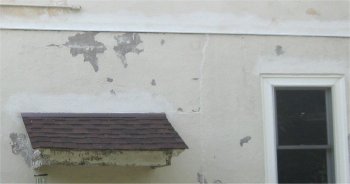
|
The rest of the house was in pretty good shape, just
requiring painting. Areas above the windows, wood sill, and roof are
cut back for new flashing.
|
Patches are finished over new flashing.
|
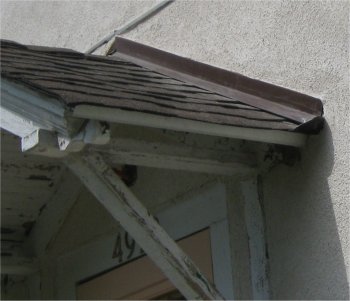
|
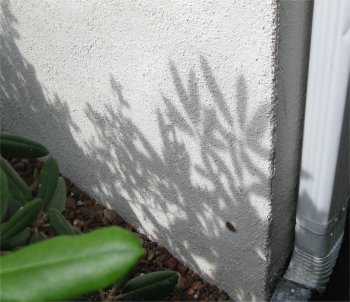
|
We put on a new counter flashing and kickout
were put on over the roof before the stucco was applied.
|
2 Sacajawea dollars were embedded in the wall close to the ground. This one
is tails, and the one on the left side is heads.
|











